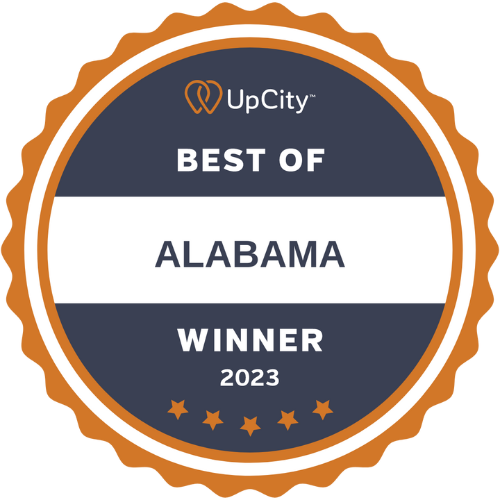Search engine optimization (SEO) is essential to any digital marketing strategy. It helps businesses to increase their visibility online and attract more customers. One of the most important aspects of SEO is keyword research. Knowing which keywords to target and how many to use can differentiate success and failure. In this article, we’ll explore how many SEO keywords you should use and the best practices for keyword research at an introductory level.
What Are SEO Keywords?
SEO keywords are words and phrases used to optimize content for search engines. They are the terms that people type into search engines when looking for information. By targeting the right keywords, businesses can increase their visibility in search engine results pages (SERPs) and attract more organic traffic.
How Many SEO Keywords Should I Use?
The number of SEO keywords you should use depends on the size of your website and the competition for the keywords you’re targeting. Generally speaking, it’s best to target a few keywords that are closely related to your business and have low competition.
For small websites, it’s best to focus on a few keywords and optimize your content for those terms. For larger websites, you can cover your topic more broadly. In either case, you should have 1 primary keyword topic per page or post. This will help you rank for more terms and attract organic traffic. However, it’s important to remember that you should only target keywords relevant to your business. Going off-topic too many times can actually harm your rankings in search engines.

Where Should I Place Keywords On My Webpage?
When it comes to optimizing your webpage for keywords, placement is key. The general rule of thumb is to have your primary keyword in the following areas:
1. Title tag – This is the title that appears on search engine results pages and should accurately describe the content on your page. Including your primary keyword here can help improve your ranking.
2. Meta description – This is a brief summary of what your webpage is about and appears below the title tag on SERPs. Although not directly used by search engines for ranking, it can entice users to click through to your website if it includes relevant keywords.
3. Heading tags – These are HTML tags that indicate the importance of certain headings or sections on a webpage. The H1 tag is the primary one and they are ordered in hierarchy as H1, H2, H3, and so on. Including your primary keyword in heading tags can help search engines understand the main topic of your page.
4. URL – Your webpage’s URL should also include your primary keyword to give search engines a clear indication of what your page is about.
5. Content – Of course, your primary keyword should appear naturally throughout the content on your webpage.
6. Bold and Italic Text – Not just primary keywords, but other related words and phrases should be highlighted with bold or italic text to make them stand out.
7. Image Alt Text – When using images on your webpage, be sure to include descriptive Alt text that includes your primary keyword. This helps search engines understand the content of your images and can also contribute to image searches.
8. Internal Links – Linking to other pages within your website not only improves user experience but also helps search engines crawl and index your site better.
9. External Links – Including relevant external links in your content can add credibility and authority to your webpage. Just be sure to use reputable sources and avoid over-linking. If your link is commercial in nature, be sure to apply a Sponsored or NoFollow tag following Google’s guidelines on linking.
10. Schema Markup – Adding schema markup to your webpage can provide additional information to search engines and improve the visibility of your content in search results. This structured data can include things like ratings, reviews, and product information.

It’s important to note that while including your primary keyword in these areas can help with SEO, it’s just one piece of the puzzle. Search engine algorithms are constantly evolving and chances are, there’s a specific set of algorithms for your specific niche. You’ll need to use competitor analysis to check the SERPS often for new updates. You can literally compare your pages to anyone ranking above yours for inspiration on how you might rank better for your target keyword. Yes, SEO’s that easy!
Best Practices for Keyword Research
When researching keywords, it’s essential to focus on terms relevant to your business and with low competition. Here are some best practices for keyword research:
- Identify Your Target Audience: It’s essential to identify your target audience before researching keywords. This will help you identify the terms they are likely to use when searching for information.
- Research Relevant Keywords: Once you’ve identified your target audience, you can start researching relevant keywords. You can use tools such as Google Keyword Planner to identify keywords that are related to your business and have low competition.
- Analyze Search Volume: It’s crucial to analyze the search volume for each keyword. This will help you identify the terms most likely to attract organic traffic.
- Optimize Your Content: Once you’ve identified the keywords you want to target, you can start optimizing your content for those terms. This will help you to rank for those terms and attract more organic traffic.
Are Too Many Keywords Bad For SEO?
Oh yeah! Advanced SEO tools like Page Optimizer Pro and Surfer SEO basically prove that there can be too much of a good thing with it comes to keyword density and SEO. Keyword stuffing, or the practice of overusing keywords in an attempt to manipulate search engine rankings, can actually harm your SEO efforts. Not only does it make for a poor user experience, but search engines like Google are constantly updating their algorithms to penalize sites that engage in keyword stuffing.
But don’t worry, this doesn’t mean you should completely avoid using keywords. In fact, including relevant and natural keywords in your content is still an important aspect of SEO. The key is to use them strategically and naturally throughout your content rather than cramming them in every possible sentence.
So how do you find the right balance? Start by creating high-quality, informative content that provides value to your readers. Then identify a few primary keywords related to your topic that are present on competitor pages already ranking and yet, missing on yours. Closing that gap is an important content optimization step.
Additionally, consider using long-tail keywords – longer, more specific phrases that target a niche market and have less competition. These can be highly effective in driving targeted traffic to your site.
But remember, the most important thing is to focus on creating valuable content for your audience. Google’s algorithms are constantly evolving, but one thing remains constant – quality content will always be favored over keyword-stuffed content. So make sure to prioritize providing value to your readers rather than simply trying to rank for certain keywords because with the shift away from cookies, Google will probably have more user behavior signals available in Chrome browser to monitor. You can bet they’ll be using those to identify which pages users prefer so they can create a better overall search experience.
over keyword-stuffed content. So make sure to prioritize providing value to your readers rather than simply trying to rank for certain keywords because with the shift away from cookies, Google will probably have more user behavior signals available in Chrome browser to monitor. You can bet they’ll be using those to identify which pages users prefer so they can create a better overall search experience.
Concluding Thoughts From Webology
Knowing how many SEO keywords to use is essential to any digital marketing strategy. Generally speaking, it’s best to target a few keywords that are closely related to your business and have low competition. For larger websites, it’s best to target more keywords and be more competitive with your selection when your authority is built up. When researching keywords, it’s essential to focus on terms relevant to your business and with low competition. Following these best practices can increase your visibility in search engine results pages and attract more organic traffic.

At Webology, we understand the importance of targeting the right keywords for your business. Our goal is to help businesses identify which pages users prefer so they can create a better overall search experience. By honing in on the most relevant and low competition keywords, we can increase your website’s visibility and attract more organic traffic.
By honing in on the most relevant and low competition keywords, we can increase your website’s visibility and attract more organic traffic.
It’s important to note that there is no magic number when it comes to SEO keywords. The key is to strike a balance between targeting enough keywords to optimize your website’s performance while also avoiding keyword stuffing, which can actually harm your rankings. This delicate balance will vary depending on factors such as your industry, competition, and website size. Webology uses advanced tools that give us an exact blueprint to follow guaranteeing a successful and consistent path to organic traffic. Reach out to us today to learn more about our keyword research services and how we can help your website reach its full potential.









